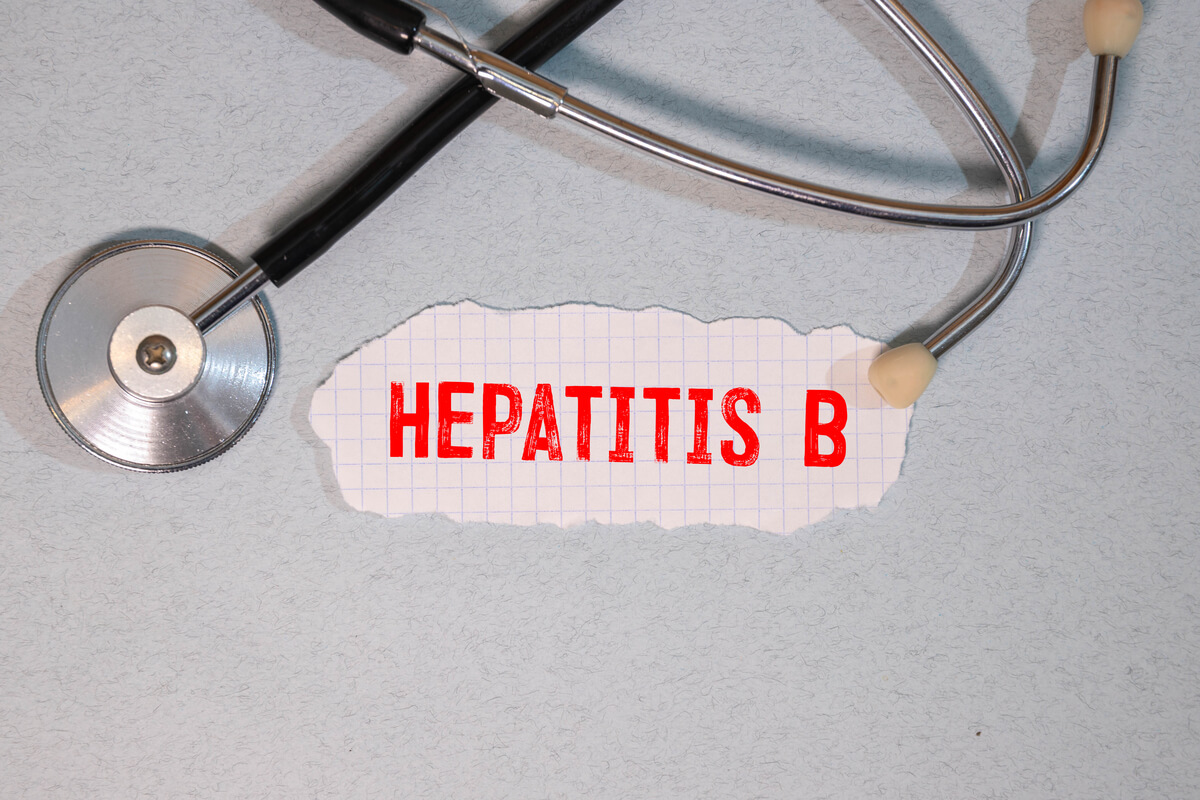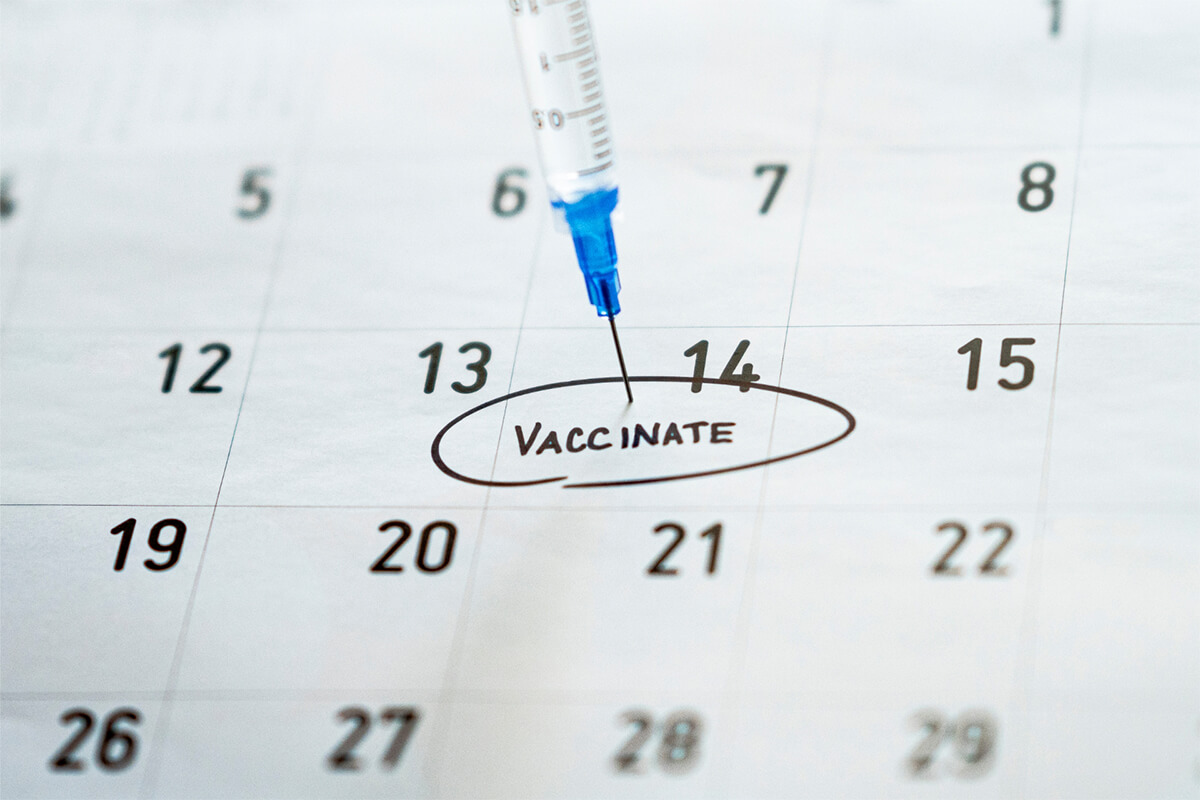Key Takeaways
- Hepatitis B vaccination offers long-term protection when given on the proper schedule.
- Vaccine options and dose timing vary by age, health status, and travel plans.
- Staying up to date with hepatitis B shots keeps you protected wherever life takes you.
Protecting yourself and your family from hepatitis B starts with understanding the vaccine schedule that fits your age, health, and travel needs. You can prevent a lifelong liver infection with a simple, well-timed series of shots recommended for infants, unvaccinated children, adults, and travelers. Knowing when to get vaccinated helps you stay protected whether you’re at home, at work, or abroad.
You’ll find that the hepatitis B vaccine schedule isn’t one-size-fits-all. Infants begin at birth, while adults and travelers may follow two-, three-, or four-dose options depending on the vaccine type. By following the right schedule, you build strong, lasting immunity that can protect you for decades.
If you plan to travel or work in healthcare, getting vaccinated before potential exposure is especially important. The schedule gives flexibility while ensuring reliable protection against a preventable disease that still affects millions worldwide.
Contents
1. Understanding Hepatitis B and Vaccine Protection
2. Hepatitis B Vaccine Schedule for Children and Adults
- Recommended Schedule for Infants and Children
- Recommended Schedule for Adults
- Special Considerations for High-Risk Groups
- Booster Doses and Missed Vaccinations
3. Types of Hepatitis B Vaccines and Combination Options
- Overview of Available Hepatitis B Vaccines
- Differences Between Vaccine Brands
- Combination Vaccines and Their Schedules
4. Hepatitis B Vaccination for Travelers and Special Populations
Understanding Hepatitis B and Vaccine Protection
Hepatitis B affects the liver and can lead to long-term health problems if not prevented or treated. Vaccination gives reliable protection by helping your immune system recognize and fight the virus before it causes serious illness.

What Is Hepatitis B Virus?
Hepatitis B virus (HBV) is a bloodborne virus that infects liver cells. It spreads through contact with infected blood or body fluids, such as through unprotected sex, sharing needles, or from mother to baby at birth.
The virus belongs to the Hepadnaviridae family and contains DNA that replicates in the liver. Once inside your body, HBV can cause either an acute or chronic infection depending on your immune response.
In most healthy adults, the immune system clears the virus within six months. However, if the infection becomes chronic, HBV remains in the liver and continues to cause inflammation. This persistent infection increases your risk of liver scarring, cirrhosis, and liver cancer over time.
Health Risks of Hepatitis B Infection
Hepatitis B mainly targets your liver, leading to inflammation and impaired liver function. Symptoms can include fatigue, nausea, dark urine, and jaundice (yellowing of the skin and eyes). Many people, especially children, may have few or no symptoms even when infected.
Chronic hepatitis B develops when the virus stays in your body for more than six months. This condition can progress to chronic liver disease, cirrhosis, or hepatocellular carcinoma (primary liver cancer).
The risk of chronic infection depends on age at exposure. About 90% of infected infants develop chronic hepatitis B, compared with less than 5% of infected adults. Preventing infection through vaccination greatly reduces these long-term health risks.
How the Hepatitis B Vaccine Works
The hepatitis B vaccine contains a small, non-infectious part of the virus called the surface antigen (HBsAg). This component cannot cause disease but safely stimulates your immune system to produce protective antibodies (anti-HBs).
After completing the vaccine series, your body remembers how to fight HBV if exposed in the future. This immune memory provides long-lasting protection, often for decades.
The vaccine is given by injection, usually in the upper arm. Completing all recommended doses ensures the highest level of protection against hepatitis B infection and its complications, including chronic liver disease and liver cancer.
Hepatitis B Vaccine Schedule for Children and Adults
You can prevent hepatitis B infection and its long-term effects, such as chronic hepatitis B and liver disease, through timely vaccination. The schedule varies by age, health status, and risk level, but it follows consistent principles for achieving lasting protection.

Recommended Schedule for Infants and Children
Infants usually receive the hepatitis B vaccine as part of the routine childhood immunisation programme. In the UK, this is given as a hexavalent vaccine (DTaP/IPV/Hib/HepB) at 8, 12, and 16 weeks of age. This combination vaccine protects against six diseases, including hepatitis B.
Babies born to mothers with hepatitis B need an additional birth dose within 24 hours to reduce infection risk. They then continue the standard schedule and complete post-vaccination testing at around 12 months to confirm immunity.
In some countries, such as the United States, infants receive a 3-dose series at birth, 1–2 months, and 6–18 months using monovalent hepatitis B vaccines. Children who miss doses can catch up using the same total number of doses with minimum intervals maintained.
Recommended Schedule for Adults
Adults who have not been previously vaccinated can start the hepatitis B vaccine series at any time. The standard schedule uses three doses at 0, 1, and 6 months. Vaccines such as Engerix-B or Recombivax HB are commonly used.
If you need faster protection, an accelerated schedule (0, 1, 2, and 12 months) may be used, particularly before travel or occupational exposure. The Pediarix formulation is not used in adults; instead, adult-strength vaccines are given intramuscularly in the upper arm.
Adults aged 19–59 years are routinely recommended to receive the vaccine. Those aged 60 years and older may also receive it, especially if they have risk factors or want protection.
Special Considerations for High-Risk Groups
Certain groups face higher risk of hepatitis B infection and should receive vaccination regardless of age. These include healthcare workers, travelers to regions with high hepatitis B prevalence, people with chronic liver disease, dialysis patients, and individuals with multiple sexual partners.
People living with HIV, diabetes, or other immunocompromising conditions may have reduced immune responses and sometimes need higher vaccine doses or additional doses for full protection. Travelers should complete the series before departure, but accelerated schedules can be used if time is limited.
Household and sexual contacts of people with chronic hepatitis B should also be vaccinated. This helps prevent transmission and provides community-level protection.
Booster Doses and Missed Vaccinations
For most healthy individuals, a complete primary series provides long-term immunity, and booster doses are not routinely required. Exceptions include people with weakened immune systems or those on dialysis, who may need periodic antibody testing and boosters if antibody levels fall below protective thresholds.
If you miss a dose, you do not need to restart the series. Simply continue from where you left off, maintaining the correct spacing between remaining doses.
Healthcare providers can check your vaccination history and antibody levels if there’s uncertainty about prior doses or immunity. This ensures you remain protected against hepatitis B infection throughout life.
Types of Hepatitis B Vaccines and Combination Options
You can choose from several licensed hepatitis B vaccines that differ in formulation, schedule, and age group use. Some protect against only hepatitis B, while others combine protection against multiple diseases in a single shot.

Overview of Available Hepatitis B Vaccines
In the United States, Engerix-B, Recombivax HB, and Heplisav-B are the main single-antigen vaccines. Each protects against hepatitis B virus (HBV) and helps your immune system build lasting protection.
- Engerix-B and Recombivax HB follow a 3-dose schedule given over six months.
- Heplisav-B is approved for adults 18 years and older and requires only 2 doses, one month apart.
These vaccines are interchangeable, meaning if one brand is unavailable, you can complete your series with another. Immunity remains effective regardless of the product mix. For adults on dialysis, higher-dose formulations of Engerix-B or Recombivax HB are recommended for stronger protection.
Differences Between Vaccine Brands
The main differences lie in dose schedule, age indication, and formulation. Heplisav-B uses a synthetic adjuvant that allows faster protection with two doses. Engerix-B and Recombivax HB use an aluminum-based adjuvant and require three doses for full immunity.
| Vaccine: Engerix-B | |
|---|---|
| Approved Age | Birth–Adult |
| Doses | 3 |
| Interval | 0, 1, 6 months |
| Special Notes | High-dose option for dialysis |
| Vaccine: Recombivax HB | |
|---|---|
| Approved Age | Birth–Adult |
| Doses | 3 |
| Interval | 0, 1, 6 months |
| Special Notes | Dialysis formulation available |
| Vaccine: Heplisav-B | |
|---|---|
| Approved Age | 18+ years |
| Doses | 2 |
| Interval | 0, 1 month |
| Special Notes | Not studied in dialysis patients |
All three have strong safety profiles and similar effectiveness. If you miss a dose, you do not need to restart the series; simply continue from where you left off.
Combination Vaccines and Their Schedules
Combination vaccines reduce the number of injections while still providing full protection. Pediarix and Vaxelis combine the hepatitis B vaccine with other childhood vaccines such as diphtheria, tetanus, pertussis, and polio. These are given to children between 6 weeks and 6 years of age in a 3-dose schedule.
For adults, Twinrix combines hepatitis A and hepatitis B protection. You receive either a 3-dose series at 0, 1, and 6 months or an accelerated 4-dose schedule completed within one year.
Combination vaccines simplify immunization and improve compliance, especially for travelers and families who need protection against multiple infections.
Hepatitis B Vaccination for Travelers and Special Populations
You may need specific hepatitis B vaccination guidance if you plan to travel internationally, are pregnant, or have a weakened immune system or chronic liver disease. Following the correct vaccine schedule helps protect you from infection and related complications.

Vaccination Recommendations for International Travelers
If you plan to visit regions where hepatitis B is common, such as parts of Asia, Africa, or the Pacific Islands, vaccination is strongly advised. The virus spreads through contact with infected blood or body fluids, which can occur through medical procedures, sexual contact, or accidental injuries.
You can receive the hepatitis B vaccine as a standard 3-dose series over six months or an accelerated schedule over 3–4 weeks with a booster after one year. This faster schedule benefits travelers needing last-minute protection.
For travelers who also need hepatitis A protection, the Twinrix vaccine offers combined immunity against both hepatitis A and B. It follows either a 3-dose (0, 1, and 6 months) or accelerated 4-dose schedule (0, 7, 21–30 days, and 12 months).
Even if you received the vaccine years ago, boosters are rarely needed unless you have a weakened immune system or received an accelerated series. Always check your vaccination records well before departure.
Guidance for Pregnant Individuals
If you are pregnant and need hepatitis B protection, vaccination is considered safe and recommended. The CDC supports using Engerix-B, Heplisav-B, Recombivax HB, or Twinrix during pregnancy when indicated.
You should receive the vaccine if you are at risk of exposure, such as through healthcare work, travel to high-prevalence areas, or contact with someone who has hepatitis B. Preventing infection during pregnancy also helps protect your newborn from transmission at birth.
Clinicians typically administer the standard 3-dose schedule. If you begin the series before or during pregnancy, you can complete it postpartum if necessary. Report any previous allergic reactions to vaccine components like yeast before receiving the shot.
Considerations for Immunocompromised and Chronic Liver Disease Patients
If you have a weakened immune system or chronic liver disease, you face a higher risk of severe hepatitis B infection. Vaccination provides essential protection, but your immune response may be lower, requiring adjusted dosing.
Adults on hemodialysis or with significant immune suppression often receive higher-dose formulations such as Engerix-B 40 µg or Recombivax HB dialysis formulation in a 4-dose schedule. Your healthcare provider will determine the best plan based on your condition.
For those with chronic liver disease or hepatitis C, vaccination can prevent additional liver damage. You should complete the full series even if you already have another liver condition. Testing for hepatitis B antibodies after vaccination helps confirm adequate protection.




